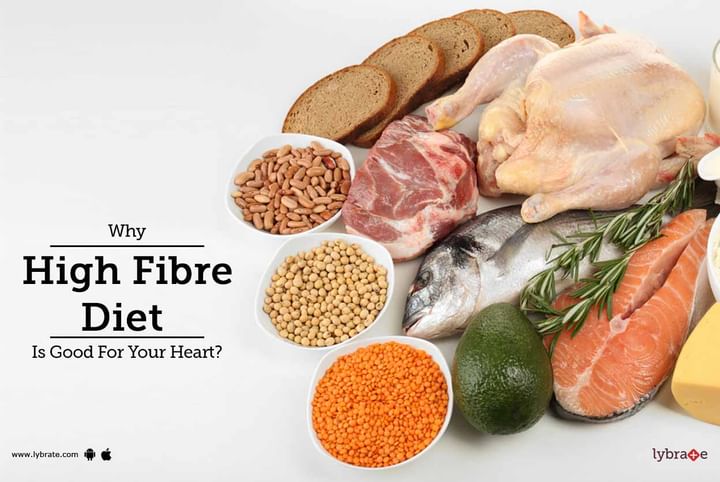Why High Fibre Diet Is Good For Your Heart?
Most people associate fibre to be good for the digestive system. It helps to add roughage and therefore helps in avoiding constipation. When we dig deeper, the fibre seems to do good not just to the stomach but to the heart as well. Those who are prone to develop heart disease should make an attempt to include more fibre in their diet and reap the rich benefits it offers.
There are two classifications of fibres
- Dietary
- Functional
Dietary ones are found in diet products and functional being added fibre through various food supplements. Soluble and insoluble fibre, based on their solubility in water. Most foods contain some amounts of both. The insoluble one has more digestive benefits, as it adds to the roughage. Both types have cardiac benefits.
Read on to know some of the benefits of fibres:
- Reduces cholesterol: There is good cholesterol which is essential for the body, and there is bad cholesterol that causes heart disease. What fibres do is reduce the amount of bad and overall cholesterol in circulation. The fibre binds to the cholesterol and removes it from the body, which otherwise would get into circulation and lead to plaque formation and heart disease.
- Reduces blood pressure: Because the cholesterol does not circulate in the bloodstream, the blood is not as vicious and therefore, the vessels exert much less pressure to allow for free flow. A diet change to whole grains can show a marked difference in people with hypertension.
- Helps in weight management: Eating fibre means more bulk and fewer calories so that a person feels full after eating smaller amounts. This is a great way to lose weight and bring preexisting heart disease under control.
- Helps in stroke prevention: The circulating cholesterol usually gets sluggish and settles down along the walls of the blood vessels. This attracts more cholesterol, which eventually forms what is knowns as plaque. When this plaque attains a considerable size, it gets dislodged, circulates in the bloodstream, and can reach any of the vital organs. When it reaches the heart or brain, it can lead to heart attack or stroke. By removing the cholesterol which leads to all these complications, fibre reduces the incidence of stroke and heart attacks.
- Helps in managing diabetes: Blood pressure, increased weight and heart disease all are predisposing factors and have common contributing factors as does diabetes. Controlling all these helps in prolonging the onset of diabetes and reducing its severity too.
High-fibre diet mainly reduces cholesterol which helps in multiple ways to maintain not just a healthy body but also improves the overall quality of life.
Foods rich in fibre -



+1.svg)
